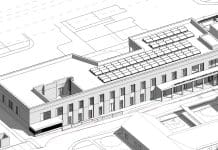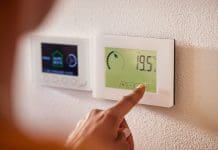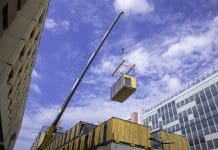Here, Crown Commercial Service explains five good reasons to think modular first as part of their sustainable construction campaign
Sustainable construction is going to be crucial if the UK is going to meet our target to reach net zero carbon emissions by 2050.
It’s estimated that construction is responsible for 39% of all carbon emissions worldwide. The reliance on traditional building methods threatens our ability to reach net zero, as well as the Government’s ambition to build back better by constructing 300,000 homes a year by the mid-2020s.
It’s increasingly accepted that Modern Methods of Construction (MMC) will play a crucial role in the future of our building strategies; but what are the more sustainable alternatives to traditional, tried-and-tested methods?
Modular construction
Modular buildings have evolved significantly in the last few decades. Today’s clean, linear
buildings offer bespoke solutions, minimum material wastage and lower energy bills – a far cry from the days of draughty and cold school ‘mobiles’.
Modern modular buildings are well-insulated, precisely designed and manufactured, and an attractive option for buyers in the public sector. They offer permanent, high-quality solutions for a variety of applications, particularly in education, health and housing.
Here are five good reasons why you should consider modular first:
-
Health and Safety
Avoiding the inherent dangers of traditional building sites by creating your new buildings in controlled manufacturing settings is a big plus point. The HSE reports more than 50,000 non-fatal injuries on building sites each year. Having your modular buildings created off-site, where safety measures can be monitored more effectively, will lower the risk of accidents.
-
Sustainability
Want to boost the sustainability of your project? Modular buildings are not only commonly created from recycled materials, but they can also more easily be recycled themselves. Building Information Modelling (BIM) is common across the modular industry, increasing the focus on energy efficiency, and green technologies like solar panels can be seamlessly incorporated into the project at design stage. 67% less energy is used in creating a modular build versus its equivalent traditional build.
-
Problem-solving
Modular buildings are constructed 50% faster than traditional builds, on average. They can also be easily expanded, relocated, refurbished, and reused – perfect for solving any problems you might not have budgeted for. Manufacturing indoors also removes the constant threat of the Great British weather, reducing hold-ups.
-
Efficiency
So much of what we’ve already talked about is really about efficiency. Essentially, fixing problems in a controlled environment while your buildings are being manufactured means less work for you when they arrive on site. Snagging for issues like interior and exterior finishes, electrical work, plumbing, and flooring, can all take place somewhere else – meaning all you should have to do is pick up your keys.
-
Optimised site management
Constructing buildings doesn’t just make a mess of the site where you’re locating them. It means road closures, more heavy goods vehicle traffic, noise and air pollution, and risks to pedestrians and other road users. Schools usually have to focus their construction work on holidays, reducing your ability to respond quickly to changing needs. Simply put, choosing modular buildings will cause less disruption.
We’re here to help
To find out more about how modern construction methods could work for you, download our free Modular Buildings whitepaper.
To find out how to access modular building services through CCS, fill in our contact form.
© Crown copyright













